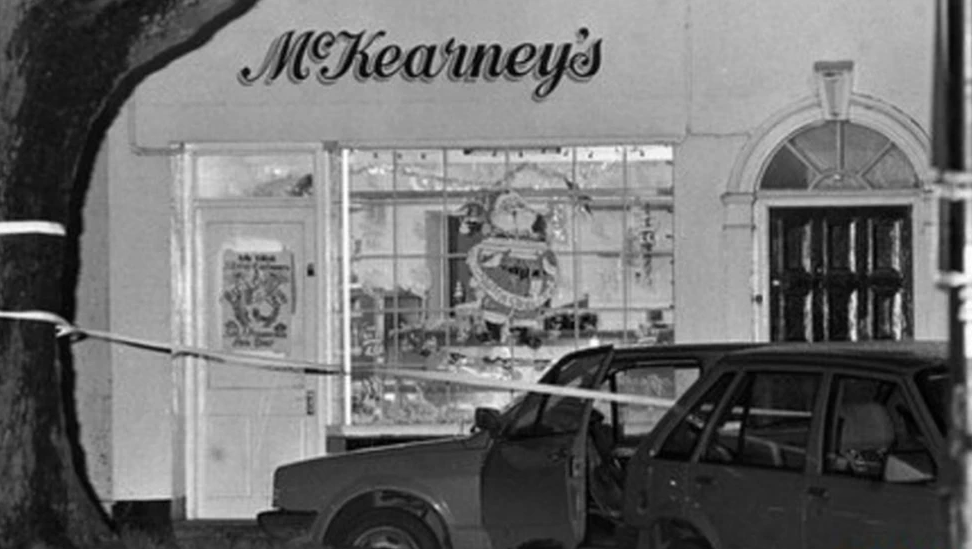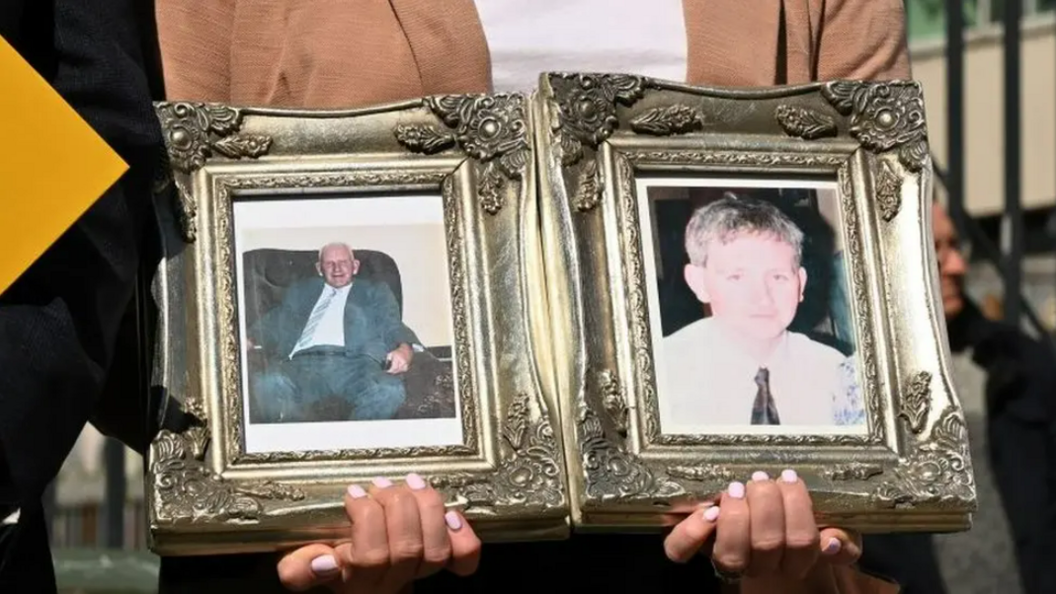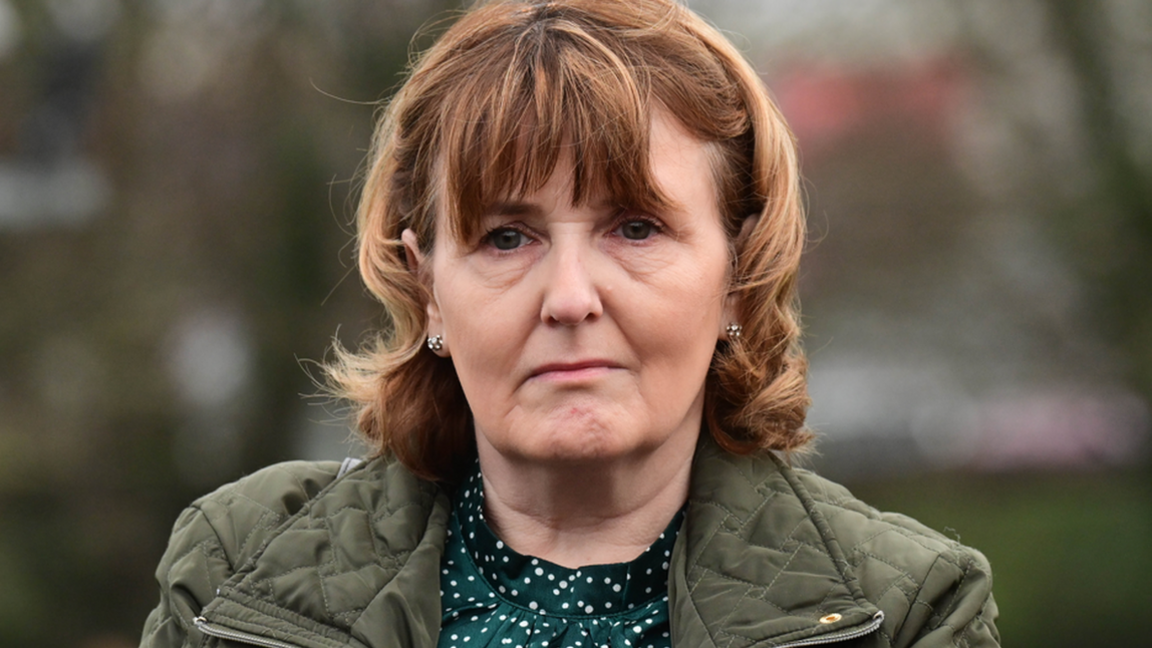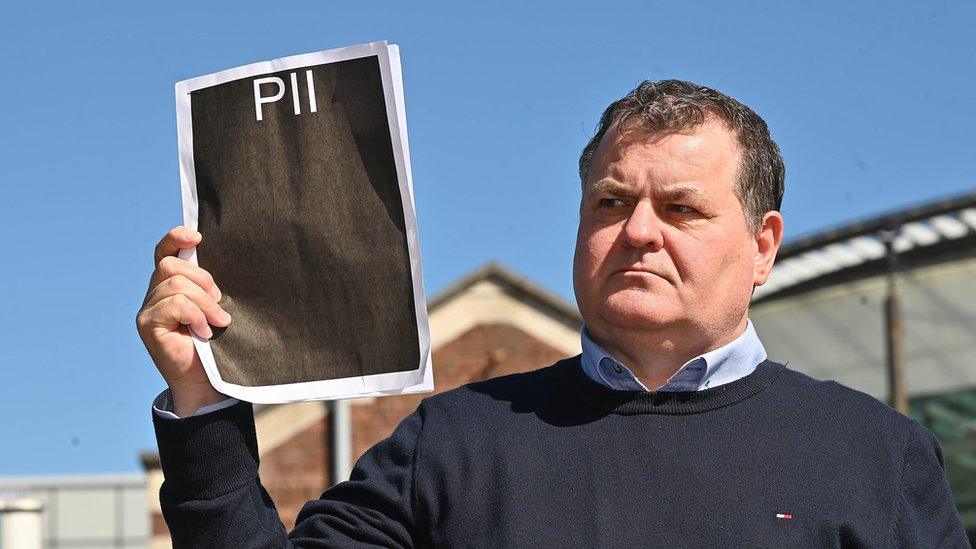No inquiry into loyalist murders of four Catholics

Kevin and Jack McKearney were attacked in the family butcher shop in Moy
- Published
The government has rejected calls for a public inquiry into the murders of four Catholics by loyalist gunmen in Moy, County Tyrone – despite a coroner suggesting it is the best way forward.
Relatives of Kevin and John McKearney and Charles and Teresa Fox suspect collusion was a factor in the 1992 shootings.
Their inquest was stopped in April over the disclosure of sensitive intelligence.
In a letter to their lawyers, Northern Ireland Secretary Hilary Benn said a public inquiry was "not the best way to proceed”.
Mr Benn suggested they take their case to the new legacy body, the Independent Commission for Reconciliation and Information Recovery (ICRIR).
He stated its powers were “comparable” to those of a public inquiry.
'We will proceed to court'
Kevin McKearney, 32, and his 69-year-old uncle John – known as Jack – were shot at their family butcher's shop in January 1992.
Charles and Teresa Fox were 63 and 54 respectively when they were murdered at their home that September.
The couple were the parents-in-law of Kevin McKearney.
The Ulster Volunteer Force said it committed all four murders.
Benn recently met the families to discuss the case.

Kevin and John McKearney were shot at their family butcher shop in Moy, County Tyrone, in January 1992
Kevin McKearney’s widow, Bernie, said: “Our inquest was stopped by the coroner and a public inquiry was recommended.
“We want our inquiry and are not accepting a lesser body like the ICRIR.
“Unfortunately, this secretary of state is no different than those before him and we will proceed to court to challenge him.”
Her solicitor, Gavin Booth, described Benn’s decision as a disgrace.
Benn’s decision mirrors one made last week in respect of murdered GAA official Sean Brown.
The government did, however, grant a public inquiry into the Pat Finucane case.
It said this was based on “unique circumstances” – the government twice having promised a public inquiry in 2001 and 2004.
'A range of factors'
A UK government spokesperson said that Benn considered "a range of factors" in the decision.
These included the families' views, the coroner’s ruling, the government’s human rights obligations and public interest.
The spokesperson added that Benn "expressed his enormous sympathy for the families" and encouraged them to meet with Sir Declan Morgan of the ICRIR to hear how the body would approach an investigation.
Related topics
- Published23 January 2023

- Published26 April 2024
